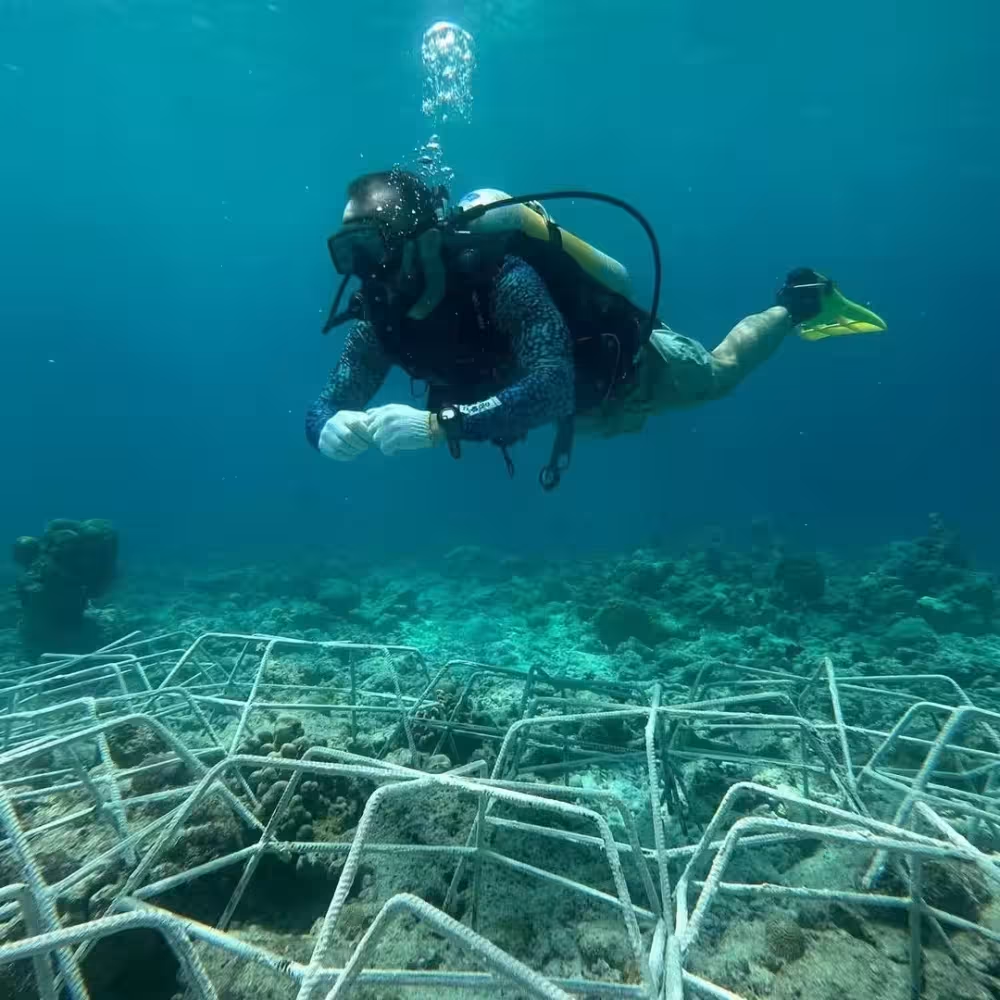At Kuramathi Maldives, sustainability is more than a principle—it is woven into the resort’s daily operations and long-term vision. Tom Osborne, Sustainability Manager at the resort, plays a central role in these efforts, aiming to drive lasting change within the property and beyond. With a BSc and MRes in Marine Biology from Swansea University, Osborne has dedicated his professional life to environmental stewardship, guided by the belief that we "borrow the Earth from our children."
Originally from Cornwall, his early connection to nature led him into marine biology, with research initially focused on juvenile green turtles. Osborne's international conservation work has taken him to Costa Rica, Oman, Saudi Arabia, and Kenya, where he helped launch an eco-centre to support local communities. At Kuramathi, he oversees a wide range of sustainability efforts, from managing coral restoration initiatives and optimizing energy use, to ensuring the resort meets Travelife standards.
One of Osborne’s key contributions has been expanding The Muraka Coral Regeneration Project. Presently, the initiative has 240 coral frames supporting 3,600 coral fragments, with plans to add another 200 frames in the coming months. This would bring the total number of coral fragments to over 5,000, with the long-term goal of reaching 1,000 coral frames. These efforts reflect Kuramathi’s broader mission to restore reef ecosystems and promote marine biodiversity.
Research plays a vital role in these sustainability strategies. Kuramathi currently hosts several postgraduate students conducting research as part of their master's programs. One student is assessing the population of grey reef sharks at Madivaru, while three others are working to calculate the carbonate budget of the reef—a key metric for evaluating its ability to function as a carbon sink and the impact of restoration on climate resilience. In the coming months, additional students are expected to arrive from universities in Munich and Milan, with research topics ranging from larval fish recruitment and chemosensory cues to the biodiversity surrounding coral frames.
In parallel, the resort has taken significant steps to reduce its environmental footprint by installing a new rooftop solar energy system across 19 buildings. Once operational, the system is expected to generate around 942,000 kilowatt-hours of electricity annually, eliminating the need for approximately 255,000 litres of diesel each year.
At the heart of these sustainability efforts is Kuramathi’s Eco Centre, a hub that promotes eco-conscious practices, builds partnerships with the local community, and serves as an educational space for guests. A standout project is the resort’s hydroponic garden, which supplies fresh, low-emission herbs and lettuces directly to the restaurants. Guests can participate in guided snorkelling safaris or attend presentations that deepen their understanding of the surrounding marine environment.
The resort also engages with the local community, particularly through its collaboration with the Rasdhoo Blue Tide Swim Club. Every month, 25 children from nearby Rasdhoo Island are introduced to the underwater world through a blend of in-water activities and educational sessions led by the Eco Centre team.
From coral regeneration and renewable energy projects to local engagement and scientific research, Kuramathi Maldives continues to demonstrate a strong commitment to sustainable tourism. Under Tom Osborne’s leadership, the resort is not only reducing its environmental impact but also actively contributing to marine conservation and climate resilience in the Maldives.



